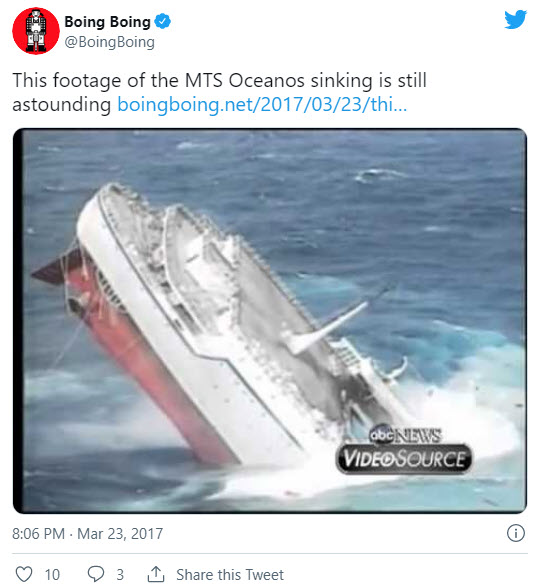
The sinking of the Oceanos can be seen as an extreme event. Comment on the defensive approaches that the owners and the crew of the Oceanos cruise liner could have adopted to prepare for such an extreme event and what they did wrong.
|
Introduction Blunden and Thirlwell (2013) listed five basic defensive approaches that owners and management of various organisations like the Oceanos can use during periods of an extreme events. The five defensive approaches are building strong risk culture, having an integrated risk management system, the ability to make informed decisions, risk appetite and lastly having business process improvement. The two went on and said that these defensive approaches need to be tested and should be in place and be part of the normal operations of the business and to a larger extent should play an important role during the period of stress. Below is the explanation of each of these defense approaches (Blunden and Thirlwell: 2013). Strong risk culture According to Blunden andThirlwell (2013) a strong risk culture plays a very important role in times of stress and market events. Empirical evidence supports this and does suggest that not only good risk management enabled firms to perform better but a strong culture plays a bigger role in giving risk management appropriate weight at the top or board level. Blunden and Thirlwell (2013) postulated that building the right risk culture will help organisation to reduce people risk. The actions of the capital show that there was a poor culture towards the operations of the ship. In addition, the crew was not counting the passengers, which entails poor culture at Oceanos.
Integrated risk management According to Deloitte (2016), integrated risk management is a framework that allows that organisational key risks are well understood, and considered in conjunction with other key risks, instead of looking at each risk in a silo. Acting as a defensive approach which Oceanos could have used, Blunden and Thirlwell (2013) suggested that integrated risk management refers to the linking of various risks which the organisation may face like linking market risk, credit risk, liquidity risk, and operational risk in a scenario. By linking all these risks together, organisations like Oceanos will be able to be more effective in using their defensive approaches in and during extreme vents. The events from the case study show that there was no integrated risk management in the organisation of Oceanos. This defensive approach was not well accommodated by Oceanos, and to a larger extent, no protocols of operational risk management were observed by the crew, (no counting the passengers) and the captain by requesting to sail even in bad weather. Strategically, the ship was not supposed to be in the South African waters during the period, since the dangers were higher, as argued by the case study.
Informed decision making The ability of the employees and management in making informed decisions plays a greater role in defensive approaches during extreme events. Decision-making during a crisis is very difficult, in most cases decisions can be made “on the hoof” or with no full information and following of protocols. This can be very disastrous, Blunden and Thirlwell (2013) advocated that Oceanos could have cultivated a culture of informed decision making, coupled with easy and robust communication from top to bottom. This culture of easy communication and informed decision-making process should be embedded into the everyday lives of the organisation and thus assist employees (crew) during the time of crisis and stress. This culture is nowhere to be found in the actions of the captain and his crew. The captain ran away, he made his decision with arrogance disregarding bad weather, and risk the lives of people over profit-making.
Risk appetite Having a risk appetite set by the board and explained to everyone with the organisation is among the defensive approaches that Oceanos could have had. According to Blunden and Thirlwell (2013), the knowledge and understanding of the risk appetite, as well as the thresholds of the appetite, might have helped Oceanos in reducing the impact of the extreme and stressful event. A well-developed risk appetite allows the organisation to set its risk and control assessments which to a larger extent helps the organisation to create an accurate view of the risk and control profile of the organisation. A lot of strength obtained when the organisation faces challenges during normal business operations will be used during the stress and extreme events as defensive approaches. From the information provided in the case, it shows that Oceanos did not have an appropriate risk appetite set, as the ship was sent during the period of bad weather and the captain encouraged sailing even if the weather was bad.
Business process improvement Blunden and Thirlwell (2013) argued that evolving business process improvement also plays a greater role in defensive approaches shielding the organisation like Oceanos during hard and difficult times. Flexibility plays a greater role in the process of building defensive approaches of the organisation, which calls for challenging current business processes as well as the control environment, and thus test if the organisation can withstand extreme events. This is another defensive approach that Oceanos could have adopted way back in its strategic decision-making process.
Conclusion In a nutshell, one can suggest that Oceanos failed to make an informed decision by sending the ship to South African waters during the winter period and to a larger extent did not consider its risk appetite that much and thus have failed. If they did put their risk appetite into consideration, there is no way the ship was going to be in South African waters during wintertime. |
| Grammatical corrections are welcome, due to speed in writing, we may make few mistakes. |
| References
Blunden. T and Thirlwell. J. 2013. Mastering Operational Risk. A practical guide to understanding operational risk and how to manage it. Second Edition Deloitte. 2016. Deloitte Total Reward and Benefits Limited. Registered office: Hill House, 1 Little New Street, London EC4A 3TR, United Kingdom. Registered in England No 3981512. |
sinking of the Oceanos can be seen as an extreme event
